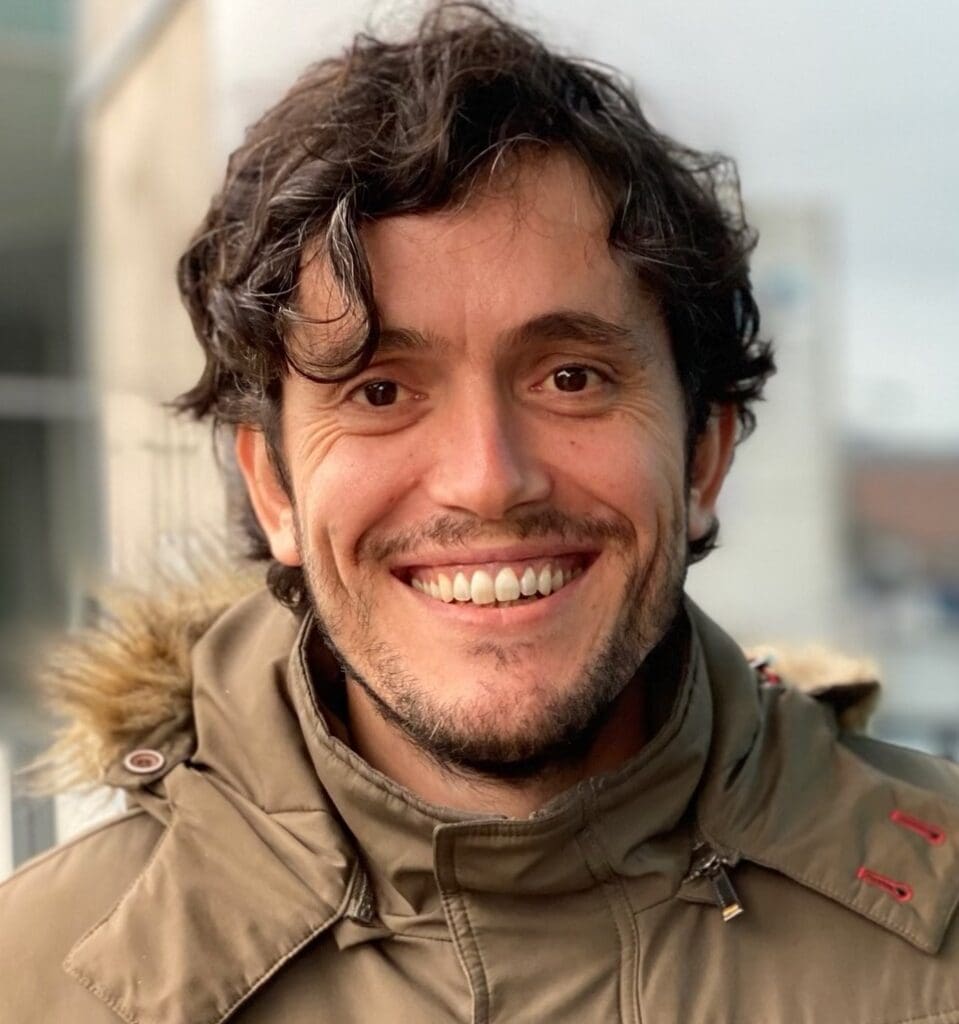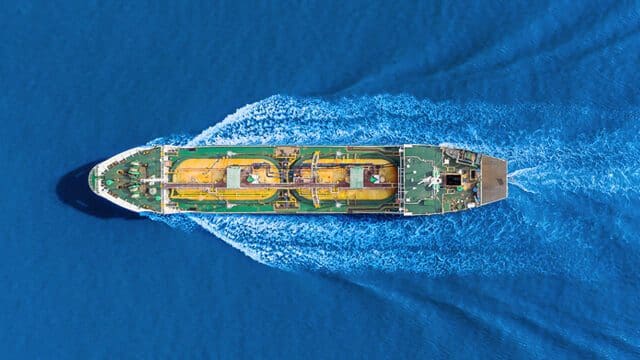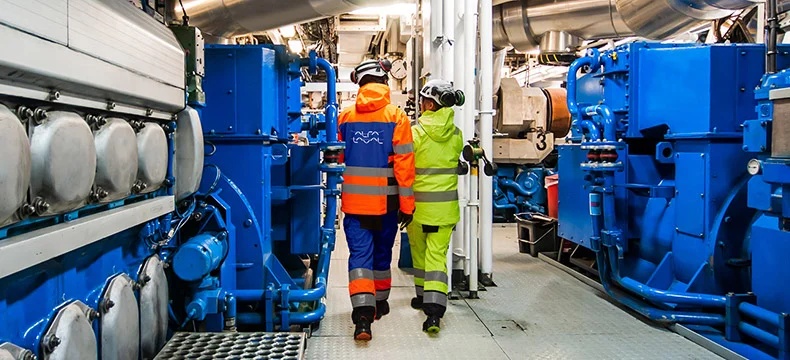Life of a Marine Field Service Manager
Simon Fernandez de la Mata was born in the northwest of Spain, in the mining area of El Bierzo (Fabero).
He studied Marine Engineering and is now a Field Service manager for Alfa Laval and is based in Galicia in Spain.
Simon Fernandez de la Mata, Marine Field Service Manager for Alfa Laval


Background
Were you interested in how things work when you were a child?
When I was a child, I was always struck by the ingenuity of all the mechanisms I had at my fingertips. It gave me the impression that they had a life of their own.
I remember that the VHS player at home had a small issue and I decided to open it to try to solve the problem. Once I had my hands on it, I was fascinated to see so many electronic elements, cables and mechanisms. Then I was even more fascinated that together they were able to move the tape and then play video and audio on the TV; that was really magic.
That time, I didn’t succeed in solving the problem. However, I had achieved a small victory: I had opened the device with a simple screwdriver, and then managed to put it back together and the VHS continued to work.
Did you like science subjects at school?
When I was at school, it was not as easy to access information as it is today through internet, videos, blogs and forums.
The only thing you could do, was to go to the library and try to feed your curiosity as much as you could.
In those books I came across great mathematical theorems, which did not really help me to solve the problem with the VHS. Though while I was looking, I came across other books that dealt with other interesting subjects such as fluid properties, temperature, and pressure as basics. Then, as well, thermodynamics that explained other more complex systems such as steam installations and generators, engines, and so forth.
So, yes, I had a clear idea that science would be my choice at school.
Marine engineering
What attracted you to study marine engineering?
If you want to travel around the world whilst working, being a marine engineer is your best choice.


Typical day as an Audit Service Engineer
What exactly did your job involve?
Once on board a ship, as an Audit Service Engineer, the main objective is to know how the crew members work and maintain their equipment and installations.
In addition, you have to find out two things:
Firstly, what are the main challenges they face on a daily basis
Secondly, what are their main concerns about the operation of the systems.
Many of these concerns arise from questions they ask themselves about “why”. These are great questions for me to work with because then I can give them answers and so build their confidence.
After this briefing with the crew members, I begin collecting data about the status of the installations on board or on site.
What happens at the end of a site visit?
A site visit ends up with a de-briefing with the crew members or plant managers. At this stage, I used to share all the data gathered during my visit, as well as the most important thing, the conclusions and recommendations.
What did you learn and take away from this time?
These meetings are great memories for me, especially the cutting-edge technical discussions we had.
Meeting all these people meant that I had the opportunity to create a network, which is still in place. This network is based on trust and respect, and because of that, I think they can look to me as an advisor.
Working for a Swedish company
What are the key differences you notice in working for a Swedish company?
Working for a Swedish company, means:
“respect, networking and empathy.”
This is one of the key differentiators I want to point out. There is always someone who listens to other people’s ideas, evaluates them, and delivers feedback about their feasibility. When the idea is something doable, they will encourage you to run with it.
Team leading as a Marine Field Service Manager
How did things change when you moved to your current role as a manager?
Once I moved into a management role, my responsibilities changed a lot.
First of all, you have to have a clear concept about the needs of engineers in the field. Also, you need to understand the technical challenges, and the impact that your team members have on the customer.
As well as this, you are responsible for more than twenty people with different skills and abilities.
You are the manager of the service team. What exactly does your job involve?
When I started, I realized that I had become responsible for one of the most demanding areas in the company.
In my department, there are a lot of conflicting needs:
my own team members – the field service engineers
sales stakeholders
peers
customers desires.
All of these need to be aligned with the company’s core values and mission.


Field service and customers
How key is the field service team to gaining new customers?
I believe in the intangible value that a service team delivers to the market.
For example, after sales service that delivers a high level of quality, commitment, and agility, makes the difference to a new/potential customer between choosing one brand instead of another.
Building a team as a Marine Field Service Manager
Where did you start in the process of building a team?
The first thing I needed to do was to decide on a clear vision about what I wanted to achieve and where we wanted to be in the next couple of years.
I also wanted to keep the focus on the core values, and make sure that those were shared across my team members.
Creating a strategy, based on that, gave me a structure and the direction to be focused on. Carrying out this exercise helps me to cover all the demands that my department will be dealing with in the future.
How do you motivate and retain your team?
One of the most important areas of my job, is my team members.
Each of them needs to understand what their contribution to the company’s vision can be. They need to be challenged but also aligned to the strategy. I feel that this is key so that my team members will stay, and to so that we can avoid too much turnover.
Health and safety
How do you instill a safety culture?
To instill a safety culture, I keep the focus on our company’s values and mission.
For example, I feel that the order my engineers follow during on-site jobs is vital. This is the order of priority I emphasise:
Safety – first
Quality – second
Deadlines – third
The other thing I keep in mind all the time is keeping the trust that my team have in me. By this, I mean that if someone in my team reports an unsafe situation that compromises their safety; and I do not support that, I will break one of the most important values of the team.
In addition, I need to avoid unsafe situations happening by setting up procedures and allowing enough time for each engineer to do their work, not just well and on time, but safely.
Field service team within the organisation as a whole
How was your change in management style viewed across the rest of the company?
Some decisions I made, were unpopular across some other company areas at the beginning. However, I am pretty sure that those created the psychological safety that my team members expected of me. They knew that they were a priority for me.
Of course, some of the decisions I make with regards to safety, for example, collided with other company interests. However, as they are aligned with the values previously agreed, they reinforced our commitment and sense of team. We also encouraged other company stakeholders to become aligned with those as well. As you can imagine, there was lots of communication needed to get things done.
Work life balance as a Marine Field Service Manager
How do you keep a good work life balance for your team of engineers?
The work life balance of a field service engineer is always difficult to maintain when also considering the company’s needs and targets.
So, part of my job is to handle personal requests from my engineers. Sometimes, the smallest things that I do, can make the biggest difference.
Sometimes what I do may not seem to be in the interests of the business, but in the end, the return I have from the engineers will be higher. It will be higher in terms of their:
Commitment
Satisfaction
Sense of belonging
This in turn will make the customers even more satisfied.
The FSEs have their own needs and reasons for the requests they make, and above all, they are human beings. So, if they ask for something, I try to say ‘yes’.
Goal setting
Another aspect that increases my team’s commitment is to establish clear and attainable goals for them.
Those could come, as I’ve said previously, from the strategy I want to follow. However, those goals should not be the same for all the team members. I make sure that I always keep in mind, that they are human beings with different skills, and all of them play an important part in attaining the company’s vision.
After we have set the goals, I make sure that there is good follow up. I want the field engineers to achieve their goals, and after all, if my team members reach their goals, I will succeed too.
To do this, I make sure that I create the space to deliver proper feedback. Without feedback, then an engineer may not go in the right direction.
I need to be as smart as I can be to align individuals’ interests within the business principles.


Recruiting new engineers as a Marine Field Service Manager
How do you find new engineers to join your team?
Looking for external candidates is always stimulating.
I’ve been involved in lots of interviews. Every one of them has added something new to my professional and personal life perspective. I must confess that I’ve learnt a lot from all the candidates I’ve interviewed; more than I could ever have imagined.
The first requirement I look for is that they have a technical background. It doesn’t matter which industry the candidate comes from. However, there are things which do matter and are important. These are that the engineer is:
used to working with rotary equipment
understands the heat transfer theory
is familiar with controllers and measurement sensors principles.
I am pretty sure that I am not hiring the most experienced engineers in our technology, because the best ones are already working for our company! So, because of that, I always try to explore more about the attitude of each engineer I am interviewing. It is only a question of time for an engineer that I hire to achieve the necessary theoretical knowledge. However, on the other hand, soft skills are not so easy to acquire.
What are the key soft skills you look for in a candidate?
I look for humility and ambition.
I like people who want to challenge the status-quo, who want to challenge themselves, and who do not hesitate to ask for help when they don’t know the answers.
One question I use, is to ask:
“What do you prefer – doing something even though you might fail, or not doing something, because you are afraid of failing?”
Women in marine field engineering
I have always been surprised that no women have ever applied for these types of positions.
I have never had the chance to interview a woman to fill the vacancy of a field technician. It has been something I have always missed.
There are women on my team, but none of them are field technicians. I am convinced that talent is not conditioned by gender and that a woman could do the roles I am hiring.
If any woman engineer wants to give the reasons why they are not attracted to this profession, I would be pleased to hear from them. It will then help me to understand better and to change our job descriptions to attract talented women engineers.
I am sure this will be very valuable.
Training programme for new engineers
Once on board, the new recruits undertake a training programme with me as a manager, as well as trainers, and mentors. All of us have a clear understanding of the training process and the targets and deadlines.
The mentor is the person who advises and guides the development of the trainees, establishes the goals, and challenges.
The trainers are the experienced engineers who transfer their knowledge.
And me, as a manager, follows up during the training, and gives feedback on the areas to be improved.
A lot of times, the mentor and the trainer end up being the same individual. A trainer or mentor can become the trainee’s trusted reference person, to share concerns that arise about the company and the job.
I feel that it is really important to respect this relationship and I encourage and support the development of trust between trainee and mentor.
Using this structure has given us the best results and progress with the new hires. This scheme helps us to support the apprentice to end up becoming an independent professional even earlier than he had planned, thanks to the help of the team.
New field service engineers advice from a Marine Field Service Manager
My main piece of advice to new FSEs is to come in with an open mind.
If you do that, you will contribute more than you imagine.
To learn, these are the steps:
First of all, find where the information is stored, and the best way to access it going forward.
Second, keep watching your colleagues, trainers, and mentors, as they will help you to grow.
Third, be patient as technical skills take time to acquire
Fourth, learn something new every day, no matter how small it is.
Fifth, start to ask yourself questions as this is a sign that you are on the right path to grow.
Sixth, when you feel that you know everything, try to look for new challenges.
Seventh, don’t stand still.
Look at the positive aspects of marine engineering, such as the places you get to know and the people you get to deal with.
Don’t ever feel dispirited even when things are difficult as we all value and understand the importance of the work you do.
New Marine Field Service Managers
My advice for new managers is to prioritise.
Work hard to know your team, as they are the most valuable asset you have.
Trust yourself.
Be aware of your bias, and always listen to what your team members and stakeholders think. They will give you the keys you need to carry out your service strategy.
Do not fail to intercede in conflicts that may arise. This is an area where you are expected to solve and troubleshoot.
You are dealing with people, so there is no specific method or manual on what or how to act, so you must be willing to change. Only you know how to change yourself, so explore different ways of doing things.
Put the emphasis on each individual’s efforts and the team’s outcomes, because imperfect people, create perfect teams.
Further offshore reading
Field Service Specialist Michiel Lamens keeping offshore cranes working all over the world


Responses